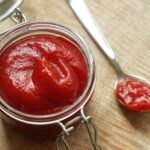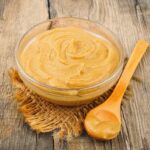 Funny thing…some things that used to be considered medicines years ago, have become common things today, like some condiments. Ketchup, for example, was sold in the 1830s as medicine. Apparently, an Ohio physician named John Cook Bennett, sold ketchup as a cure for upset stomach in 1834. Now, as a person who hates ketchup, I can say that it would have given me an upset stomach, but I am in the minority, I guess. It apparently took until the late 19th century for people to realize that while it didn’t help their upset stomach, they liked it on their food. wasn’t popularized as a condiment until the late 19th century! Apparently, Bennett sold the mix as a cure all for a number of things…including diarrhea, indigestion, and rheumatism. While it might have been a novel idea, it wasn’t based on fact.
Funny thing…some things that used to be considered medicines years ago, have become common things today, like some condiments. Ketchup, for example, was sold in the 1830s as medicine. Apparently, an Ohio physician named John Cook Bennett, sold ketchup as a cure for upset stomach in 1834. Now, as a person who hates ketchup, I can say that it would have given me an upset stomach, but I am in the minority, I guess. It apparently took until the late 19th century for people to realize that while it didn’t help their upset stomach, they liked it on their food. wasn’t popularized as a condiment until the late 19th century! Apparently, Bennett sold the mix as a cure all for a number of things…including diarrhea, indigestion, and rheumatism. While it might have been a novel idea, it wasn’t based on fact.
A mustard plaster, or mustard pack, is a home remedy believed to ease symptoms of respiratory conditions.  However, there’s no evidence that mustard plasters work. The treatment may also cause unwanted side effects such as skin irritation and burns. A mustard plaster is mainly used for coughing and congestion, but it’s also used for pain such as: backaches, cramps, and arthritis.
However, there’s no evidence that mustard plasters work. The treatment may also cause unwanted side effects such as skin irritation and burns. A mustard plaster is mainly used for coughing and congestion, but it’s also used for pain such as: backaches, cramps, and arthritis.
Apple cider vinegar (ACV) is a type of vinegar made with crushed fermented apples, yeast, and sugar. Vinegar is used in things like salad dressings, pickles, and marinades. While these food used are one thing, vinegar has also been used it as a home remedy…and still is today. Things like fighting germs to preventing heartburn. Recent studies had shown that it might have some real health benefits. Things like reducing blood sugar levels and aiding weight loss have been explored. As with other “condiment medicines” no real evidence of these benefits has been found. The good news is that ACV is harmless, if used correctly.  Vinegar does contain contains some of the nutrients in apple juice, including B vitamins and antioxidants called polyphenols, which is a good thing.
Vinegar does contain contains some of the nutrients in apple juice, including B vitamins and antioxidants called polyphenols, which is a good thing.
I suppose it could be said that these and other condiments contain vitamins, minerals, and other things that might be good for us, there is no proof that they are a substitute for medicines. The addition of sugar as an ingredient in modern recipes makes me question the nutritional value of these items, much less the medicinal value of them. Nevertheless, there are lots of medicines that don’t really help either and some that are actually detrimental to health, so that fact might need to be taken into account when we consider whether to go with natural medicine or man-made medicine.


Leave a Reply